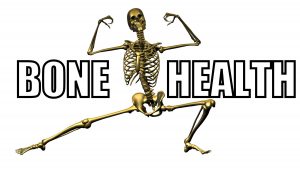 The Calcium Myth
The Calcium Myth
What do you know about Calcium (Ca)? You know that it’s good for bones and teeth and keeps them healthy and strong, right? But did you know that Ca, without it’s sister mineral Magnesium (Mg), is positively dangerous!
Excess Ca
An excess of Ca has a detrimental effect on your body because it inhibits the action of Mg. It is much more common for Mg to be depleted than Ca. In fact according to the World Health Organisation (WHO) up to 80% of the population is Mg deficient and if you are Mg deficient your Ca levels will be too high.
Mg deficiency by default
The easiest way to become Mg deficient is to consume too much Ca which will give you a Mg deficiency by default. Ca intake from food is by far the more healthy way of keeping Ca levels at an optimum. Unfortunately, it is estimated that a large percentage of the population take Ca supplements too. We have been misinformed about the benefits of Ca, or perhaps I should say, we haven’t been given the whole story when it comes to how to maintain strong, healthy bones and teeth along with a strong and healthy body overall.
Dairy promoted everywhere
Dairy products, especially milk are promoted everywhere. We are encouraged to drink plenty of milk and eat Ca rich foods. Many food producers’ adverts, particularly relating to children, expound the virtues of the large quantity of Ca in their products which they say will aid healthy bone growth in children. Also milk and dairy products are indorsed for reducing the likelihood of succumbing to osteoporosis and suffering fractures. Protection against arthritis and other bone disorders are also proffered.
Duff information
Why are we being continually given this duff information. Why is the medical profession ignoring the other most important mineral for your bones, Mg. Without it your bones will be chalky and more liable to fracture. If you took all the Mg out of your bones, you will not be able to sustain the weight of your body, you would fall to the ground, shattering your bones, just like dropping a piece of chalk on the floor.
BMJ study
A study published in the British Medical Journal (BMJ) has advised that high intakes of milk is linked to a higher risk of fractures along with higher death rates in both men and women.
 Observational research from Sweden led by Prof. Karl Michaëlsson actually refutes the claims that milk has such health benefits and further states that consumption of 3 or more glasses of milk per day could actually be doing us more harm than good and shortening our lives. This study found after tracking two groups:
Observational research from Sweden led by Prof. Karl Michaëlsson actually refutes the claims that milk has such health benefits and further states that consumption of 3 or more glasses of milk per day could actually be doing us more harm than good and shortening our lives. This study found after tracking two groups:
- The Swedish Mammography Cohort: a group of 61,433 women, aged 39-74 in 1987-1990.
After 20 years 15,541 had died and 17,252 had a fracture. Of these fractures 4,259 were hip fractures.
Higher milk intake did not reduce the risk of a fracture but women who drank more than 3 glasses of milk per day had a higher risk of death than those who drank less than one glass per day. - The Cohort of Swedish Men: a group of 45,339 men, aged 45-79 in 1997.
After 11 years 10,112 died and 5,066 had a fracture. Of these 1,116 were hip fractures.
Despite being less than the female group, men also had a higher risk of death with a higher consumption of milk.
It was concluded that more consumption of milk did not protect from fractures but it could be linked with a higher rate of death.
What the USDA recommend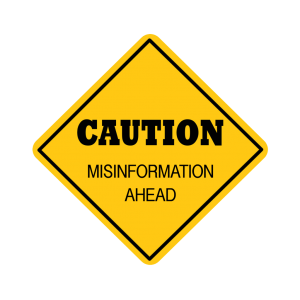
As a matter of interest, the USDA (United States Department of Agriculture), proposes that 3 cups of dairy per day is necessary to support good health and improve bone mass. As well as this, drinking 3 to 4 glasses of milk per day is supposed to save more than 20% of health care costs in relation to osteoporosis. This is what I call misinformation and leading the public astray to the detriment of their health.
What about children?
A study in 2013 concluded that Mg absorption was the key to predicting the bone health of a child, not Ca. Parents seem to worry that their children are not getting enough Ca and tend to compensate by giving them copious amounts of Ca rich foods.
It’s not the parent’s fault
This misinformation is not the parent’s fault. It has come about from such recommendations as laid down by governmental bodies such as the USDA. The food industry will also push certain foods that they produce. It’s called advertising and unfortunately it often has little to do with the truth but more to do with profits.
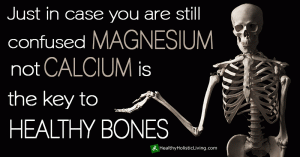 Mg vital for healthy bones
Mg vital for healthy bones
This study also found that the intake of dietary Ca was not particularly associated with total bone density or mineral content. What was more vital was the amount of Mg in the child’s body so that Mg can combine with Ca to produce a healthy bone matrix. Mg actually regulates the Ca in a child’s body and secures Ca’s transfer to the bones.
Check out the images
For the rest of this post, I will show images of xrays of those suffering from excess Ca that has been laid down in their soft tissue instead of going into their bones. It shows that Ca can go absolutely anywhere but, of course, some places Ca settles are more serious than others!
Excess Ca is dangerous

If Ca and Mg are not properly balanced then Ca will end up migrating to parts of the body where it doesn’t belong. Slowly but surely, dangerous deposits of Ca can end up anywhere including the kidneys, the brain, the arteries, the cartilage and the heart, laying the foundation for an unhealthy future life for that child.
Children’s illnesses related to Mg deficiency
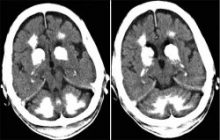
There are many conditions and illnesses that abound in our children today. Despite so many of them being related to a Mg deficiency, it seems the last thing a parent will be prescribed for their child is a Mg supplement.
Mg supplementation can help these conditions
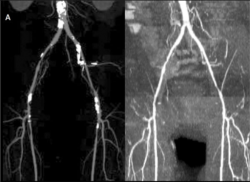
These conditions can be alleviated and even cured with a regular daily intake of a good quality Mg supplement along with foods that have the most Mg in them. I will not use the word ‘rich’ in Mg because there are not many foods in this modern day that are actually ‘rich’ in many nutrients. You can blame that on our agricultural and food production methods. Some child related conditions that could be controlled or cured with Mg are:
- ADHD (Attention Deficit Hyperactivity Disorder)
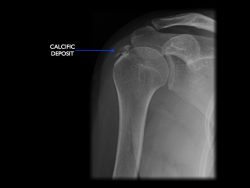
Calcified Shoulder - ADD (Attention Deficit Disorder)
- Anxiety disorders such as panic attacks
- OCD (Obsessive Compulsive Disorder
- ASD (Autism Spectrum Disorder)
- Childhood Depression
- Asthma
- Digestive disorders such as constipation
1 child in 10 has a mental illness
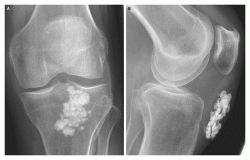
According to Dr Sharna Olfman, Prof of clinical and developmental phychology, psychiatric conditions have increased dramatically in the US since the 1990s until she published her book in 2008 called ‘No Child Left Different’. The NIMH (National Institute of Mental Health) estimates that 1 child in 10 suffers from a mental illness which results in functional impairment. The first line treatment is nearly always drugs with more than 10 million youngsters on antidepressants and 5 million on stimulants like Ritalin.
Stop the drugs, start natural nutrients
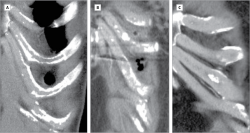
If youngsters of today were just taken off all these drugs, restricted in their sugar intake and treated with natural nutrients such as Mg, we would have a nation of healthier children in body and mind. We are not doing our children any favours by treating them with drugs. They are relying on us as parents and guardians to help them grow healthy and strong but we are failing miserably. What are we doing, for heaven sake!!
Don’t trust big business
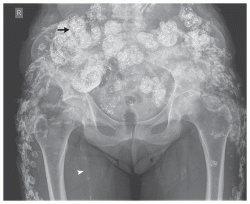
If you value the health of your child, don’t trust all that is told to you by your doctor, who is, by the way, hogtied by his superiors, so it’s not entirely his fault. Don’t trust the pharmaceutical industry, they are just in it for the money. Don’t trust the food producers, they are also only worried about their for profits. Don’t trust the government, they are being controlled by big business. Don’t trust the media, they will give out what big business tells them to. Afterall, its big business who are paying them; just think of the adverts for example.
Nobody cares more than you

Nobody cares about you or your family more than you do. Question everything, do your own research and make your own decisions about your health and the health of your family. Start now by looking into all the drugs that you or your family are taking and that includes flu shots and vaccines. Check for toxins such as mercury and aluminium in vaccines. Make sure the food you are eating is made by you and/or is from natural and non intensive farming sources. Don’t eat junk, don’t drink aspartame laced drinks, don’t consume antacids like ‘tums’.
 Keep Ca and Mg balanced
Keep Ca and Mg balanced
Above all, make sure your Ca and Mg levels are balanced. A 1 : 1 ratio is ideal but hard to achieve because Ca is more abundant in foods and is often fortified by the food industry, whereas Mg is not. The best Mg supplement to take and most bioavailable to the body is Mg Chloride which you can make up yourself.
One last thing
 I have always wondered why it is that we as humans drink milk throughout our lives and the milk we do drink after weaning is from other animals. All other mammals only drink milk until they’re weaned. Do you know of any other animal that drinks milk after weaning. If you do let me know.
I have always wondered why it is that we as humans drink milk throughout our lives and the milk we do drink after weaning is from other animals. All other mammals only drink milk until they’re weaned. Do you know of any other animal that drinks milk after weaning. If you do let me know.
Spread the word!
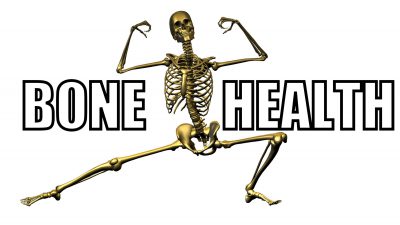

Hello
I did know that we need magnesium but I did not know that calcium without magnesium is dangerous. I was quite ill a couple of years ago and found out then that I was magnesium deficient. Since then I’ve been taking a supplement. Having magnesium deficiency can lead to other health issues as well. What a great article! Thank you for bringing this to light.
Hi Angie and thanks for reading the article and your comments. I am pleased to note that you are taking Mg regularly, this can avoid many conditions including the most serious such as atherosclerosis, diabetes and heart disease. Magnesium is vital for the heart. The highest level of Mg in the body is in the heart, specifically in the left ventricle, which does most of the work.
Great article and very informative, thanks for writing and sharing it!!
I really enjoyed reading and learned a lot.
If 1:1 is the ideal ratio, but very difficult to obtain what would you consider the most skewed acceptable ratio to be? Obviously we all strive for perfection, but what balance would you recommend not exceeding?
I really appreciate the insight into why you can’t immediately trust many large resources that also serve to advertise certain things. Would you be willing to share some of the most useful and reliable sources that you suggest for doing ones own research?
Hi there AMW and thanks for taking the trouble to read the article. As for the ratio of 1:1 it is accepted by experts in the field that this is the optimum ratio but some say a 1:2 Mg:Ca is acceptable whilst not being ideal. Interestingly, a reversed ratio of 2:1 Mg:Ca would also be good because it is neigh on impossible to overdose on Mg as it is so easily excreted, not so Ca. I read an article recently where someone had taken 5 grams of Mg daily to treat his condition and he has now cured himself. I myself often consume more Mg than Ca. I watch my Ca intake zealously trying not to take more than 500mg per day. Quite often I take as much as 1gram of Mg daily depending on my stress levels and exercise.
The criteria I use for research is not to trust anything put out by the pharmaceuticals. I only consider studies done by independent researchers with no affiliations or conflicts of interest to big business be it big pharma, large agricultural or chemical companies or large food producers. You have to dig quite deep to ensure studies are not massaged, managed or ghost written. The FDA, who supposedly monitor research before allowing drugs onto the market, take big pharma’s research at face value, they don’t do their own research, they also appear to take little notice of independent studies. Take Aspartame for instance.
I always read what naturopaths, who are also MDs, have to report. These are the doctors of the future. They will look at the whole body and assess what is lacking in nutrients, vitamins and minerals. They will only prescribe a drug if all else fails and then they will ensure it has been well researched and has no serious side effects. It’s ironic that most naturopaths know more about the side effects of pharmaceutical drugs than allopathic doctors do!